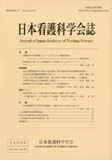Japanese
English
- 販売していません
- Abstract 文献概要
- 参考文献 Reference
- サイト内被引用 Cited by
要旨
本研究の目的は異文化間看護能力尺度を開発し,尺度の信頼性と妥当性を検証するとともに,異文化間看護能力の現状と規定要因を明らかにすることである.比較的多くの外国人クライアントの看護に携わっている看護職2集団である青年海外協力隊看護職帰国隊員,公立総合病院勤務看護職を対象に無記名の自記式質問紙調査を実施し,両群を比較する視点から分析した.その結果,844名の回答から以下のことが明らかとなった.
1.本研究で開発した異文化間看護能力尺度は,妥当性,信頼性が概ね確認された.
2.青年海外協力隊看護職帰国隊員群の尺度得点は,公立総合病院看護職群に比して,異文化間看護能力および構成要素全てにおいて有意に高かった.最も差の大きかった要素は「異文化間看護の文化特定の知識」であり,次いで「異文化間看護の文化一般の知識」「接近─回避の傾向」「自文化の認識」「異文化間看護の技能」の順であった.
3.異文化間看護能力の規定要因は,促進する方向の要因として「海外生活経験」「得意な外国語があること」「仕事以外で外国人と会う機会」,減ずる方向の要因として「看護に携わった外国人クライアントの人数が少ないこと」であった.
Abstract
This study aims to develop and evaluate an instrument for measuring Cultural Competence in Nursing (CCN), to examine nurses with relatively more experience in dealing with foreign clients on CCN, and to identify predictors of the CCN. The survey data were collected from two samples: nurses who had been Japan Overseas Cooperation Volunteers (JOCVNs) and those who were working at two municipal hospitals (MHNs), by using an anonymous self-report questionnaire. The results of analyzing the 844 responses are as follows:
1. The validity and reliability of the Cultural Competence in Nursing Scale (CCNS) developed in this study are adequate.
2. At the CCNS and all subscales of it, the JOCVNs' average scores are significantly higher than the MHNs'. The most difference is found in the component“specific cultural knowledge”, which is followed by“general cultural knowledge”,“approach-avoidance tendency”,“awareness of his/her own-culture”, and“cultural skill”.
3. The results of the multiple regression analysis indicates that the enhancing factors of the Cultural Competence in Nursing are“overseas living experience”,“having a good command of a foreign language”, and“having chances to meet foreigners off duty”, while the reducing factor is“having less experience in nursing foreign clients”.
Copyright © 2003, Japan Academy of Nursing Science. All rights reserved.


